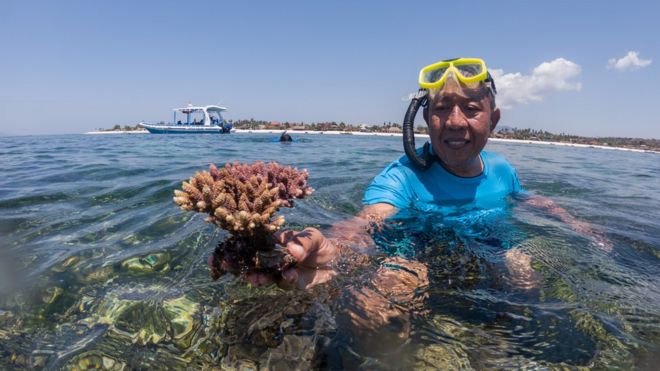"After the ban, I lost everything," says Agus Joko Supriyatno. "It cost me my house, my wife and my health."
For years, the 52-year-old made his living as a cultivator of sustainable, farmed coral just off the coast of Nusa Lembongan, a small island near Bali.
But when the Indonesian government banned all coral exports in 2018 to stop illegal harvesting of wild coral, thousands of sustainable farms across the country collapsed.
Mr. Supriyatno had been supplying hundreds of pieces of coral per week to aquarium shops in Europe and China, where they are used in fish tanks for decoration.
But his underwater farm went bust, and he ended up suffering a stroke, which he says was caused by the stress.

Now, he and other farmers are hoping to get their lives back on track after Indonesia's new Minister of Maritime Affairs, Edhy Prabowo, reversed the ban at the beginning of January.
But environmentalists fear that without a blanket ban, there will be a resurgence in illegal harvesting, as farmed and wild coral are often indistinguishable.
Coral is a living thing, groups of marine invertebrates that live together in compact colonies. It can either come from the wild or be cultivated in underwater farms, such as Mr. Supriyatno's.
Before the Indonesian ban, it was perfectly legal to export the farmed variety, and the country was the world's largest supplier, accounting for 70% of the coral sold to the £13bn-£15bn global marine aquarium market.
But in 2018, Indonesia's former maritime minister, Susi Pudjiastuti, felt extreme measures were needed to stop overfishing and foreign poaching of wild coral in Indonesian waters.
She also thought it was too difficult to differentiate between farmed and wild coral, with the latter often being passed off as the former. And so she brought in a law that stopped coral exports of all kinds overnight.













0 Comments